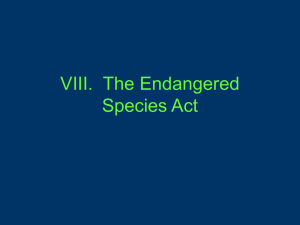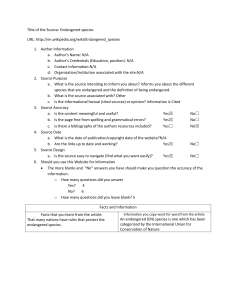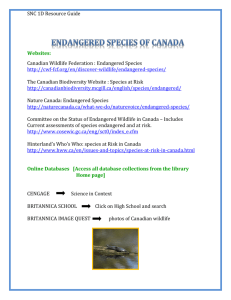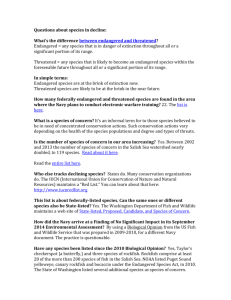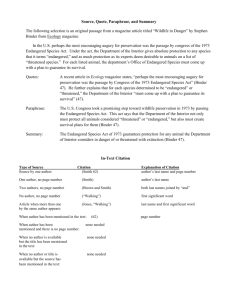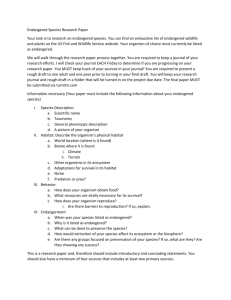The Endangered Species Act (1973, 1982, 1985, 1988)
advertisement
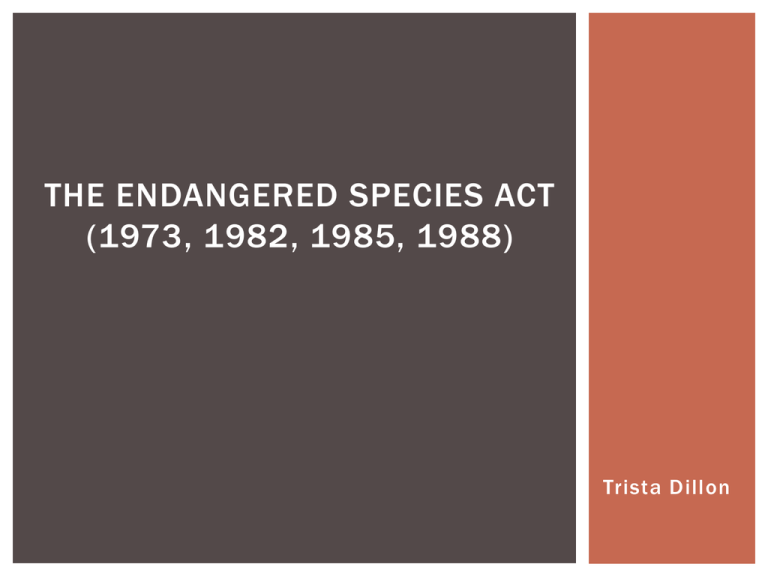
THE ENDANGERED SPECIES ACT (1973, 1982, 1985, 1988) Trista Dillon THE ENDANGERED SPECIES ACT National Act Draft year: Signed into law by President Richard Nixon on December 28, 1973. It was formed by Congress in 1973 and it was to show that our rich natural heritage is of “esthetic, ecological, educational, recreational, and scientific value to our Nation and its people.” Amendment Years: Congress enacted significant amendments in 1978, 1982, and 1988, while keeping the overall framework of the 1973 Act essentially unchanged. WHAT IS THE ESA? •defines “endangered” and “threatened ” species •makes plants and all invertebrates eligible for protection •requires Federal agencies to use their authorities to conserve listed species and consult on “may af fect” actions •prohibits Federal agencies from authorizing, funding, or carrying out any action that would jeopardize a listed species or destroy or modify its “critical habitat” •provides authority to acquire land for the conservation of listed species, using land and water conservation funds •implements CITES protection in the United States •prohibits unauthorized taking, possession, sale, and transport of endangered species •authorizes the assessment of civil and criminal penalties for violating the Act or regulations ENVIRONMENTAL ISSUES AFFECTED It was designed to protect critically imperiled species from extinction as a consequence of economic growth and development untempered by adequate concern and conservation. The population everywhere continues to grow which specifies the need for expansion and when we expand we tend to take over and wipe out their habitats and potentially forcing these species onto the endangered and threatened species list. The majority of species have been placed on the list due to destruction of habitat, pollution, hunting and killing, predators, and the introduction of exotic species. AGENCY/GROUP RESPONSIBLE It is administered by the U.S. Fish and Wildlife Service and the Commerce Department’s National Marine Fisheries Service (NMFS). The FWS has primary responsibility for terrestrial and freshwater organisms, while the responsibilities of NMFS are mainly marine wildlife such as whales and fish such as salmon. SOURCES http://www.fws.gov/ENDANGERED/laws -policies/index.html http://www.fws.gov/laws/lawsdigest/esact.html http://en.wikipedia.org/wiki/Endangered_Species_Act#Endan gered_Species_Act


